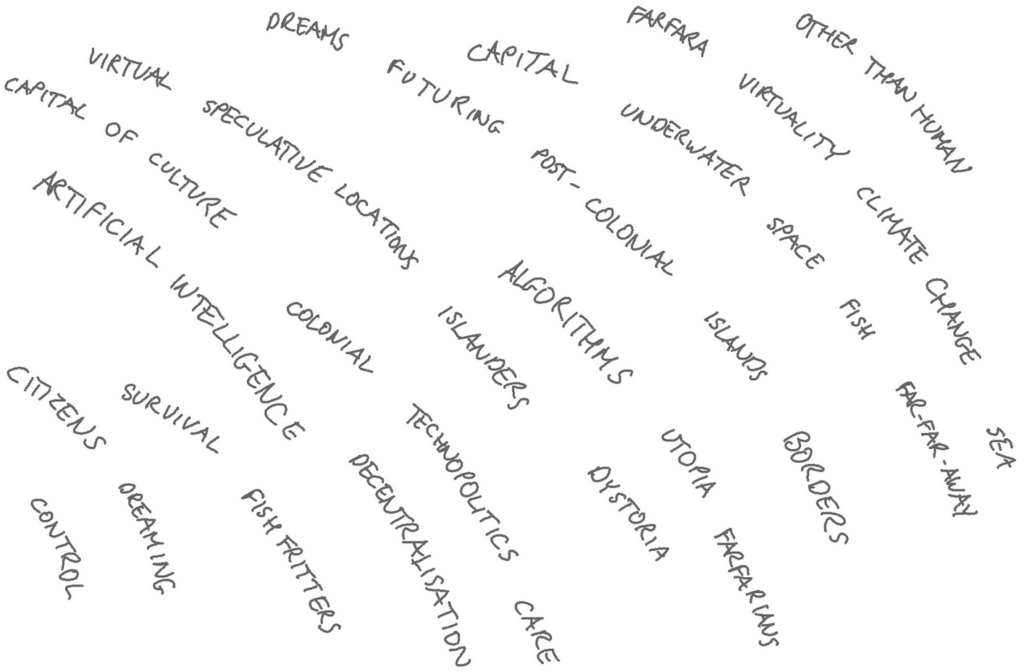
Farfara2031, referring to an island that appeared sporadically on maps of the 16th century, is a project and research process, using the procedure of bidding with this fictional island for the title of European Capital of Culture (ECoC). Designed as an artistic experimental platform Farfara2031 aims to push the boundaries in thinking, practising and experiencing what an ECoC may be if virtuality is considered as a new form of cultural ‘physicality’. Farfara2031 takes the model of ECoC as a working template for investigating innovative structures and improved relations of creative and systemic thinking to develop models of collaboration, common curation and hybrid / blended models of training, capacity building, informal education and artistic production with participants and audiences at the heart of the work done.The project believes that arts programming and producing art in the digital realm should go beyond a process of digitisation of an analogue format. However this requires a shift in creative practice and, in particular, thinking and conceptualisation. Within the context of a European Capital of Culture – created in a pre-digital world – we need to examine how the knowledge transfer from current trends in arts programming and production within the digital space can be extended to an ECoC digital programme and subsequently serve as a point of departure for digital culture. The project aims to contribute to a European vision beyond the usual or known parameters, terminologies and factual argumentations, or rhetoric of competitions of “The City in the Age of Touristic Reproduction” (Boris Groys). It attempts to explore new modes of digital and analogue learning and sharing, and takes Farfara – this mythical Maltese island – as a potential host, model or test-bed of a new way of approaching the intense activity surrounding the conferring, programming and managing of an ECoC.In a broader context, the project will implement the first step of a longer-term project (Comino-Farfara2031) by looking specifically into the mysterious island of Farfara, to critically examine how virtuality can create a different understanding of creative activity within a non-physical space, and through the framework of the ECoC programme, itself made up of three key elements; ‘European’, ‘Capital’ and ‘Culture’. By using this framework, and the three key elements which refer to many-layered elements, such as identity, history, religions, conviviality, economics, and geographies, the project proposes a rethinking of the process of cultural experimentation. Thus, in this context, Farfara highlights the speculative components of futuring the three terms as a dynamic field of perspectives, and asks what potentials can be found by looking closely at concepts of place, community or identity through the lens of programming an ECoC for a space that simply does not exist – in other words, what does a cultural programme for digital communities which goes beyond spatial thinking look like?Ultimately, the project’s research question is: How can virtuality – understood here as a new form of urban and cultural ‘physicality’ – shape a more radical understanding of what European Capital of Cultures should achieve, by planning a cultural programme for a non-physical place?This research question will be explored through the project’s planned programme of field research, a series of online forums with a broad circle of collaborators, several workshops with experts in various related fields, and a residency programme through an open call to artists and researchers. The project will conclude with a fictional online bid for the title of Farfara2031.
